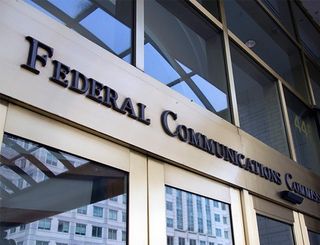Cable, Satellite, Radio Public Files Heading to FCC

The FCC has voted to approve an order requiring cable and satellite operators and radio stations to put their public files—political advertising, children's programming—in a searchable FCC online database. Depending on how long it takes for the rules to take effect, that could come in time to allow campaign finance reformers to more easily scope out MVPD and radio political ad buys in the 2016 race, as they do now for TV stations.
That came at its Jan. 28 public meeting. In teeing up the vote, Media Bureau deputy chief Mary Beth Murphy said the FCC was updating the rules to reflect tech changes and make public access more easy, particularly political ad files, while minimizing the burdens on filing.
Satellite operators and cable systems with more than 1,000 subs will have to start uploading their files as soon as the Office of Management and Budget signs off on the extra info collection requirements under the new regs per the Paperwork Reduction Act.
The FCC since 2012 has required TV stations to upload their files into the database.
There will be a phase-in period for smaller radio stations of fewer than five employees (they will have two years—until March 1, 2018—before they have to upload their public files), and a waiver process for special cases.
Radio stations in the top 50 markets with five or more stations will be required to file as soon as the rules become effective.
The FCC is not requiring archival material to be uploaded but only new material on a going-forward basis. Once they have fully transitioned to online public files, they can stop maintaining a local file "as long as they provide online access to back-up political file material via the entity’s own website if the FCC’s online file database becomes temporarily unavailable."
Broadcasting & Cable Newsletter
The smarter way to stay on top of broadcasting and cable industry. Sign up below
The Campaign Legal Center, which was among those who had asked the FCC to extend the public file requirement, wanted the FCC to use a revenue test for smaller radio stations, saying with consolidation and sharing agreements the number of employees was no longer a "useful" measure. "Because of new joint agreements among station groups, radio stations with substantial audiences in major markets may have as few as two full-time employees," CLC had blogged in advance of the vote. The FCC decided against the revenue test.
The American Cable Association had sought to raise the exemption to systems with 2,500 or fewer, but the FCC decided to stick with its original cut-off.
There were no major changes from the item as voted in December 2014, but there were changes, some of which made the item more palatable to Republican commissioner Ajit Pai. Those included: 1) Cable headend locations will not be required to be placed in the online file—cable operators had security concerns about giving the general public access to what is essentially critical infrastructure; 2) Donor lists for noncommercial stations will still have to be posted online, but there will be a waiver process for those who think putting those lists online would discourage people from contributing—some religious stations, for example, worried about having their donors harassed.
Pai said he was concerned about the potential for harassment and chilling the marketplace of ideas.
"Recently, it has become disturbingly common for people with unpopular or controversial positions to be harassed, shouted down, or intimidated. Some have even lost their jobs or seen their businesses boycotted. I do not believe that the FCC should do anything that could enable this kind of bullying. It principally serves to chill public debate and impoverish the marketplace of ideas, and it is unbecoming of a nation that cherishes its First Amendment freedoms."
Pai wanted the requirement removed, but the waiver process was a partial victory. Also a victory was that the list will not have to be posted until the FCC or a court had reviewed the request not to post it.
Commissioner O'Rielly echoed Pai's concerns about the donor lists.
There is also language that the FCC will give favorable consideration to compliance deadline waivers by very small stations.
The vote was unanimous, with some Republican concurrences rather than full-throated support.
"In the digital age, it doesn’t make sense for hardcopies of these documents to gather dust in forlorn file cabinets," said Pai in his statement. "I agree with most of this Order. Where I do not, we’ve been able to improve it," he said.
In December 2014, the commission approved the proposed rulemaking requiring cable and DBS systems and radio stations (and XM-Sirius) to post their public files, including political files, in an FCC-administered online database.
Contributing editor John Eggerton has been an editor and/or writer on media regulation, legislation and policy for over four decades, including covering the FCC, FTC, Congress, the major media trade associations, and the federal courts. In addition to Multichannel News and Broadcasting + Cable, his work has appeared in Radio World, TV Technology, TV Fax, This Week in Consumer Electronics, Variety and the Encyclopedia Britannica.

